Letter from Hafren Forest
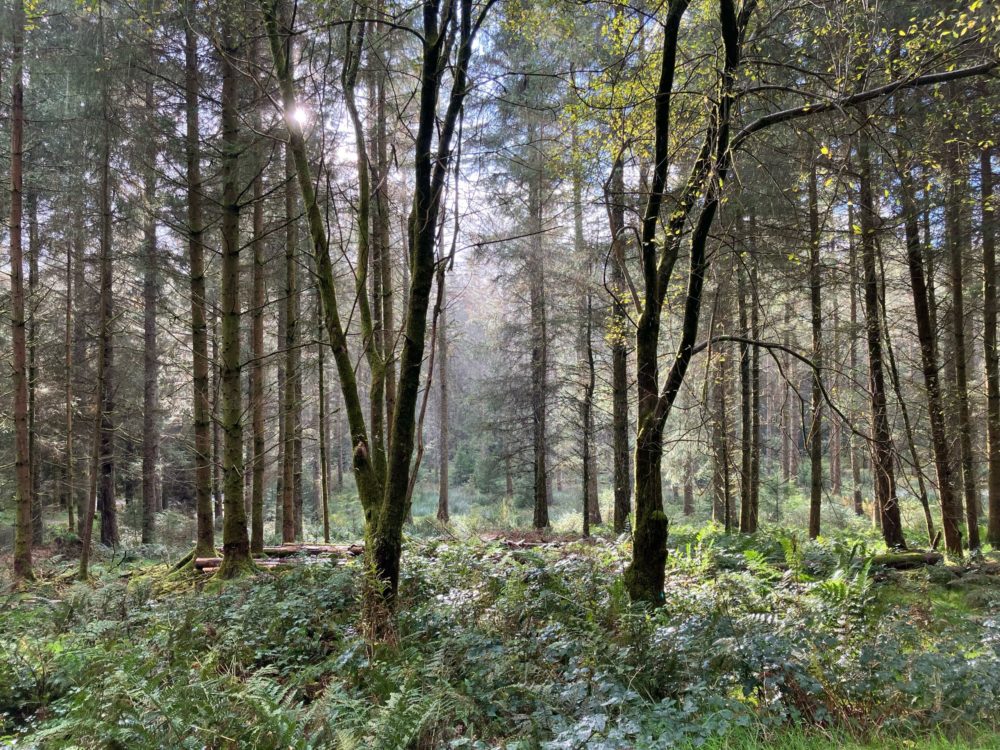
Morgan Davies
Rain is falling between the trees, just visible in the branch-softened light. It lands with a liquid crackle on the bracken and brambles below.
The trees are tall and thin, with lamppost trunks packed tightly together, standing resolutely upright, transfixed by the sky.
The wheels of his chair thunk between the planks of the boardwalk as I push him along.
When we were young, this was our railway track, and his wheelchair was our train, and I pushed him along at speed, him making his happy sounds as the rhythm grew faster before we slowed to pull into each station at the benches along the way.
The air is moist and fragrant.
Water slides off over-burdened leaves or runs unseen through the sodden ground, drawn irresistibly under the boardwalk and into the river beside us.
The river is clear over the brown pebbles, though here and there the bare bank bleeds a reddish-brown liquid into it the colour of rooibos tea.
He makes a noise and I stop to check him over, tucking the dampened blanket tighter around his legs, checking the warmth of his splayed fingers, and pulling the hood back up over his head with its strong, dark hair which stubbornly refuses to thin or go grey.
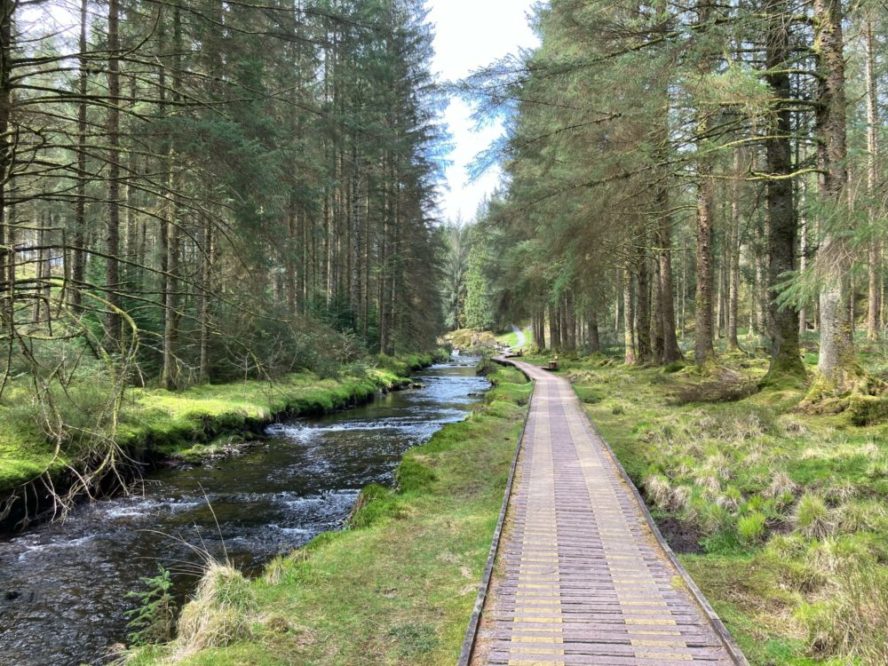
Hafren Forest lies on the eastern slopes of the Pumlumon massif, that sprawling, five-peaked upland that marks the highest point in central Wales.
Two of the greatest rivers in Wales and England have their origin here in the peat bogs of Pumlumon, flowing eastwards from its smooth-sided summits.
The longest of them, the Afon Hafren or River Severn, has hardly begun before it reaches the forest. Here the nascent river passes over falls and rapids, taking a narrow route down to the town of Llanidloes.
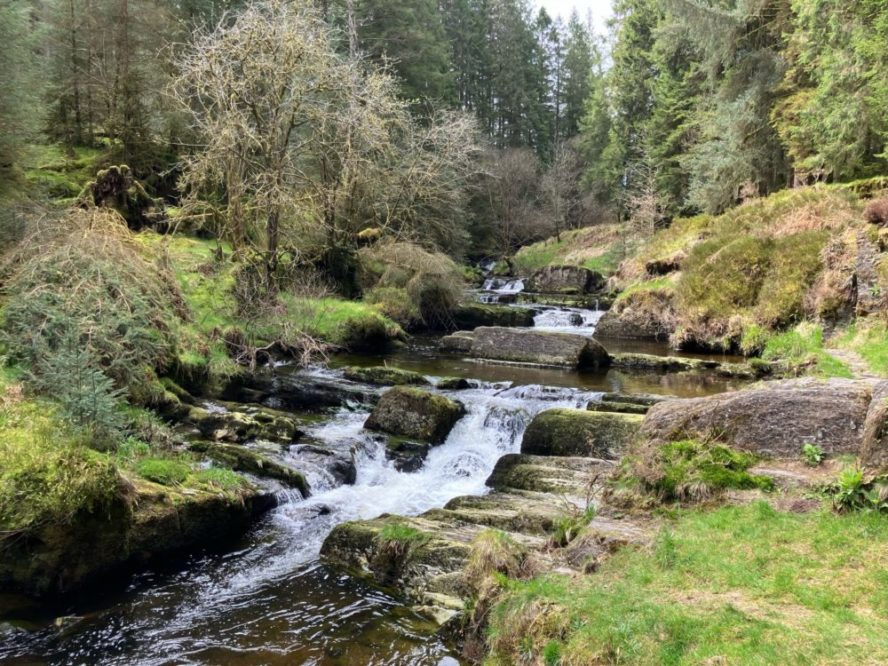
A boardwalk has been constructed along its banks as part of an accessible trail called the Cascades Walk.
With the boardwalk, those with buggies, wheelchairs or mobility scooters can all enjoy this small piece of the forest.
This is no ancient forest, though, but a plantation. Pine and spruce trees were planted here nearly a century ago, and the great, rutted tracks between the trees, the stacked trunks, and the sounds of distant felling remind the visitor that this is a working forest.
Occasionally, an oak sapling takes root in the narrow space between the trees and the river, but most of the rest is destined to be timber, stripped and sawn before the lorries take it away.
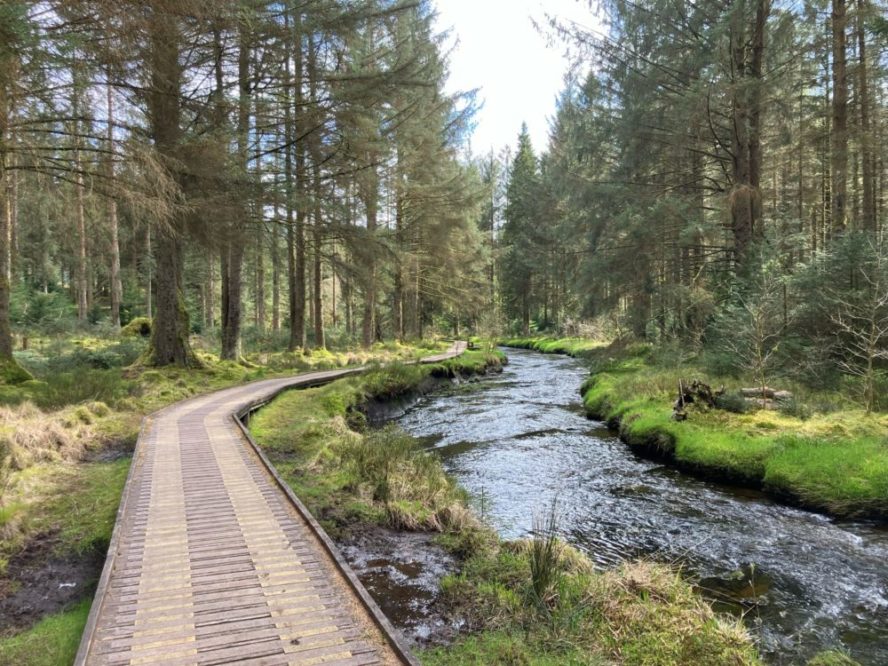
Today there is tourism, logging, and sheep farming, but there are signs here of other ancient communities, be it a standing stone or a barrow or the ruins of a mediaeval farmstead.
There are the remains of bronze age copper and lead mines in the forest, their entrances made conspicuous by the fencing that surrounds them, with signs warning the onlooker not to approach.
Fungi, lichens and mosses all thrive in this damp woodland. I have seen perfect fairy tale fly agarics, with their fat red caps and their constellations of white.
Where else is there like this for someone like my brother? There are no walls, no concrete, no windows, no traffic. This is not the familiar smell of the carpet as he stretches on the floor at home.
For this one moment he has the rain on his skin, the open sky above the river, the scent of trees, shadows, stillness, birdsong.
Here he can glide over mud and roots, deep in the Cambrian Mountains, miles from the nearest town.
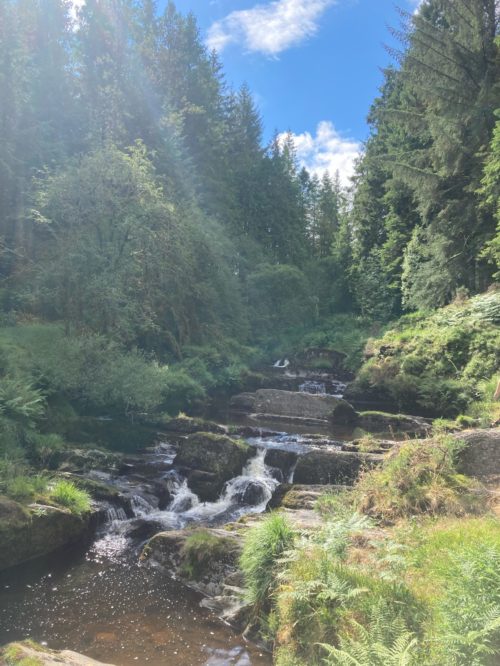
We stop at the viewing platform overlooking the cascades. I find a spruce cone and hand it to him, and he rubs his fingers along its rough sides.
The river falls suddenly, forcefully here, showing brightly between the rocks in a ceaseless churn of water. It slows for a moment, deepening into a pool before falling again.
I have swum in this pool before, and as I watch, a wagtail lands on the long rock at its edge and bobs along its length.
My brother is quiet now with the noise of the water. I sit down on the bench and look into the mystery of his eyes.
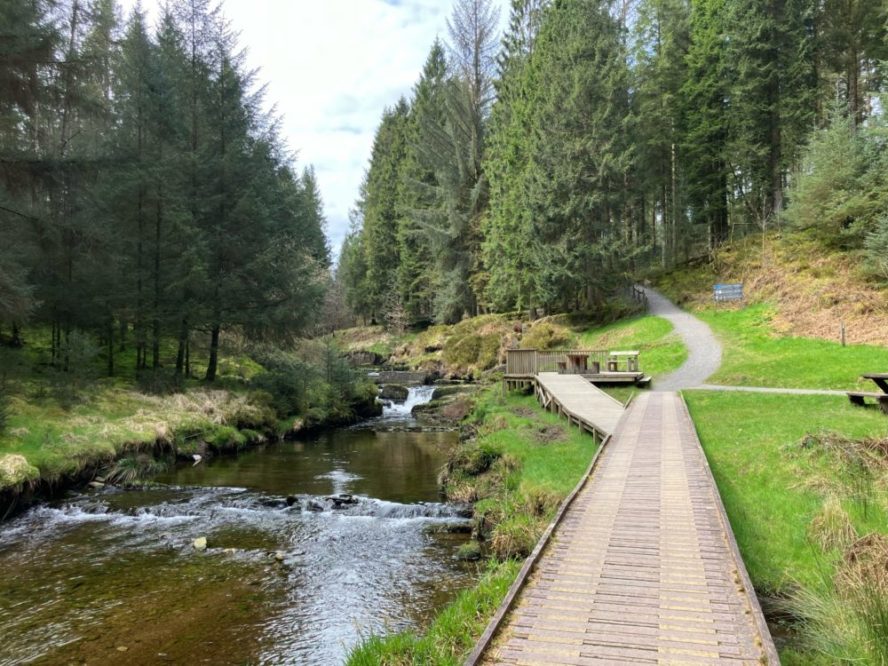
We saw an owl here once, flying in broad daylight. One day when the wind was right, we heard the cars rallying across the mountain. I have forgotten to shave him. It will do his skin good, I tell myself.
I knock the water from the fronds of a fern with my foot and think about all the ways I have failed him. The water rushes, the wagtail takes flight, and the moment is gone.
I take hold of the handlebars again and lead us back along the boardwalk.
I will push him up the ramp into the van and drive us home, following the river until it fattens and finds the town where I will feed and wash him and hand him back again, and I will wonder if he dreams that night of the land that surrounds him, of the water that flows unending from its five-mountain heart.
The Burning Bracken by Morgan Davies is published by Victorina Press and is available from all good bookshops.
Support our Nation today
For the price of a cup of coffee a month you can help us create an independent, not-for-profit, national news service for the people of Wales, by the people of Wales.





